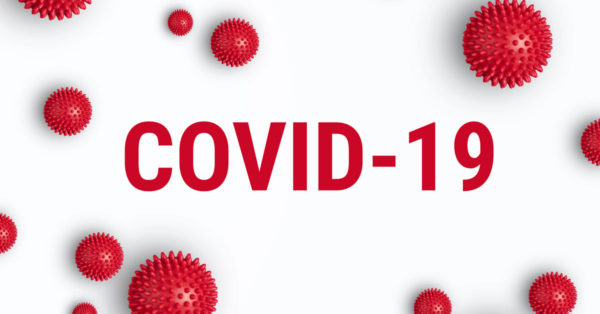

If you or a loved one test positive for COVID-19, you may now have treatment options. COVID-19 treatment options are available for patients with mild to moderate symptoms and for hospitalized patients. Mild symptoms may include fever, cough, sore throat, malaise (feeling unwell), headache, muscle pain, nausea, vomiting, diarrhea, and loss of taste and smell. Moderate symptoms may also include shortness of breath.
The U.S. Food and Drug Administration (FDA) has authorized treatments for emergency use. Talk to your healthcare provider about treatment options. Your provider will know the best option for you, based on your symptoms and your health history.
 *Click here to learn more about high risk status.
*Click here to learn more about high risk status.
OUT-OF-HOSPITAL TREATMENT OPTIONS FOR PATIENTS WITH MILD TO MODERATE COVID-19 ILLNESS
The following treatments have been authorized for emergency use by the FDA for non-hospitalized patients with mild to moderate cases of COVID-19. The FDA has determined that the known and potential benefits of these treatments for non-hospitalized patients are greater than the treatments’ known and potential risks.
Monoclonal antibody treatments: The FDA has issued Emergency Use Authorization for three investigational monoclonal antibody treatments that can attach to SARS-CoV-2, the coronavirus that causes COVID-19. These antibodies could help your immune system recognize and respond more effectively to the virus.
These treatments have been authorized for patients with mild to moderate cases. This includes those who have had symptoms for 10 days or less, who are 12 years of age and older, and who are at high risk for progressing to severe COVID-19 and/or hospitalization. It also includes people who are 65 years old or older, and who have certain chronic medical conditions. Learn more about antibody treatments with bamlanivimab, the combination of etesevimab and bamlanivimab, and the combination of casirivimab and imdevimab.
HOSPITAL TREATMENTS FOR PATIENTS WITH SEVERE COVID-19 ILLNESS
The following treatments for hospitalized patients with severe cases of COVID-19 have been approved or authorized for emergency use by the FDA.
Remdesivir: This is the first drug approved by the FDA for the treatment of COVID-19 in hospitalized adults and hospitalized pediatric patients at least 12 years of age. Remdesivir, also known as Veklury®, is in a class of treatments called antivirals. It works by stopping SARS-CoV-2 from spreading in the body.
Other available COVID-19 treatments: Other drugs and treatments are used to slow or reduce the virus’ growth and spread in the body, as well as to enhance breathing, provide disease-fighting antibodies developed in labs, and help with other symptoms.

CLINICAL TRIALS FOR NEW COVID-19 TREATMENTS
Because the coronavirus that causes COVID-19 is a novel or new virus, we are still learning about it. Hundreds of clinical studies (also known as clinical trials) for COVID-19 treatments are underway now, and many other clinical trials are looking for volunteers.
The participation of patients with COVID-19 in clinical trials is critical to finding effective treatments. One of the largest needs is for a diverse population of individuals from all backgrounds. Scientists need to test treatments and vaccines in all populations, including Black, Hispanic, and Native American communities, to be sure the treatments and vaccines work in all people affected by COVID-19.

more recommended stories
 Fentanyl Seizures at Border Continue to Spike, Making San Diego a National Epicenter for Fentanyl Trafficking
Fentanyl Seizures at Border Continue to Spike, Making San Diego a National Epicenter for Fentanyl TraffickingFentanyl Seizures at Border Continue to.
 Utah Man Sentenced for Hate Crime Attack of Three Men
Utah Man Sentenced for Hate Crime Attack of Three MenTuesday, August 8, 2023 A.
 Green Energy Company Biden Hosted At White House Files For Bankruptcy
Green Energy Company Biden Hosted At White House Files For BankruptcyAug 7 (Reuters) – Electric-vehicle parts.
 Former ABC News Reporter Who “Debunked” Pizzagate Pleads Guilty of Possessing Child pδrn
Former ABC News Reporter Who “Debunked” Pizzagate Pleads Guilty of Possessing Child pδrnFriday, July 21, 2023 A former.
 Six Harvard Medical School and an Arkansas mortuary Charged With Trafficking In Stolen Human Remains
Six Harvard Medical School and an Arkansas mortuary Charged With Trafficking In Stolen Human RemainsSCRANTON – The United States.
 Over 300 People Facing Federal Charges For Crimes Committed During Nationwide Demonstrations
Over 300 People Facing Federal Charges For Crimes Committed During Nationwide DemonstrationsThe Department of Justice announced that.
